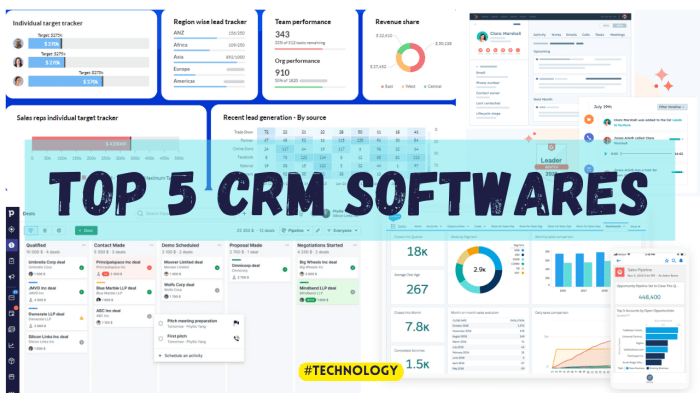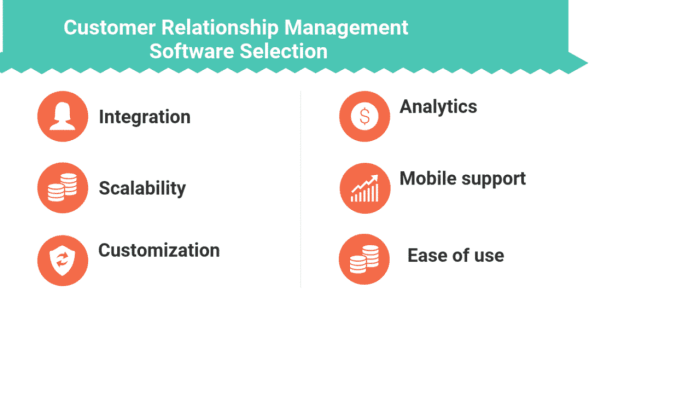Crm with accounting software – In today’s dynamic business landscape, efficient management of customer relationships and financial data is paramount. Integrating Customer Relationship Management (CRM) software with accounting software offers a powerful synergy, streamlining operations and providing invaluable insights for informed decision-making. This comprehensive guide explores the benefits, features, and considerations of integrating these crucial business tools.
Understanding the Synergy: CRM and Accounting Software Integration
Traditionally, CRM and accounting systems operated in silos, leading to data duplication, inconsistencies, and inefficient workflows. Integrating these systems bridges this gap, creating a unified platform where customer interactions and financial transactions are seamlessly connected. This integration fosters a more holistic view of the business, enabling better forecasting, improved customer service, and enhanced financial control.
Key Benefits of Integrating CRM and Accounting Software
- Improved Data Accuracy: Eliminates data entry duplication, reducing errors and ensuring consistency across both systems.
- Enhanced Efficiency: Automates tasks such as invoice generation, payment processing, and reporting, freeing up valuable time and resources.
- Better Customer Relationship Management: Provides a 360-degree view of each customer, including their purchase history, payment status, and communication logs, enabling personalized interactions and targeted marketing campaigns.
- Streamlined Sales Processes: Automates sales order processing, tracks sales performance, and facilitates accurate revenue forecasting.
- Improved Financial Reporting and Analysis: Generates comprehensive financial reports that provide insights into customer profitability, sales trends, and overall business performance. This includes key metrics like customer lifetime value (CLTV), average revenue per user (ARPU), and customer churn rate.
- Reduced Operational Costs: Automates manual processes, reducing the need for manual data entry and minimizing errors.
- Improved Decision-Making: Provides access to real-time data and insights, enabling more informed decisions regarding sales strategies, marketing campaigns, and resource allocation.
Features of Integrated CRM and Accounting Software
The specific features of integrated CRM and accounting software vary depending on the chosen platforms, but common functionalities include:
Core Features:
- Automated Invoice Generation: Directly generates invoices from sales orders or quotes within the CRM system.
- Real-time Payment Tracking: Tracks payments received and updates customer accounts automatically.
- Automated Reporting and Analytics: Generates comprehensive reports on sales, revenue, customer profitability, and other key performance indicators (KPIs).
- Centralized Customer Data: Provides a single source of truth for all customer-related information, including contact details, purchase history, and communication logs. This also includes crucial data points for accurate financial reporting and analysis like payment terms and outstanding balances.
- Improved Sales Forecasting: Uses historical data and sales trends to predict future revenue and manage inventory effectively.
- Integration with Other Business Tools: Seamlessly integrates with other business applications such as email marketing platforms, e-commerce platforms, and project management tools.
Choosing the Right CRM and Accounting Software Integration
Selecting the right integrated solution requires careful consideration of various factors:

Source: hastagtechnology.com
Factors to Consider:, Crm with accounting software
- Business Size and Needs: Small businesses may require simpler, more affordable solutions, while larger enterprises may need more sophisticated systems with advanced features.
- Industry-Specific Requirements: Certain industries have unique requirements that need to be addressed by the chosen software.
- Scalability: The chosen system should be able to scale with the business as it grows.
- Integration Capabilities: Ensure the software integrates seamlessly with existing systems and other business tools.
- User-Friendliness: The software should be intuitive and easy to use for all team members.
- Cost and Pricing Models: Evaluate the cost of the software, including licensing fees, implementation costs, and ongoing maintenance.
- Customer Support: Reliable customer support is crucial for resolving issues and ensuring smooth operation.
Frequently Asked Questions (FAQ)
- Q: What are the benefits of integrating CRM and accounting software?
A: Integration streamlines operations, improves data accuracy, enhances efficiency, and provides valuable insights for better decision-making. It also leads to improved customer relationships and better financial control.
- Q: How does CRM and accounting software integration improve customer service?
A: By providing a 360-degree view of each customer, including their purchase history and communication logs, businesses can personalize interactions and offer more targeted support.
- Q: What are some common features of integrated CRM and accounting software?
A: Common features include automated invoice generation, real-time payment tracking, automated reporting, centralized customer data, and improved sales forecasting.
- Q: How much does integrated CRM and accounting software cost?
A: The cost varies depending on the chosen software, features, and pricing model. Some solutions offer subscription-based pricing, while others may require one-time purchases.
- Q: What are the key considerations when choosing integrated CRM and accounting software?
A: Consider your business size, industry-specific requirements, scalability, integration capabilities, user-friendliness, cost, and customer support.
- Q: Can I integrate my existing CRM and accounting software?
A: The feasibility of integrating existing systems depends on their compatibility and available APIs. Some systems may require custom integration solutions.
Conclusion: Crm With Accounting Software
Integrating CRM and accounting software is a strategic move that can significantly enhance business efficiency, improve customer relationships, and drive profitability. By carefully considering the factors Artikeld above and selecting the right solution, businesses can unlock the full potential of these powerful tools and gain a competitive edge in today’s market. The seamless flow of information between these systems empowers businesses to make data-driven decisions, optimize their operations, and ultimately achieve sustainable growth.
References
Call to Action
Ready to streamline your business operations and unlock the power of integrated CRM and accounting software? Contact us today for a consultation to discuss your specific needs and find the perfect solution for your business.

Source: panorama-consulting.com
FAQ Explained
What are the key benefits of using CRM with accounting software?
Key benefits include improved data accuracy, reduced manual data entry, enhanced reporting and analytics, better customer insights, streamlined billing processes, and improved financial forecasting.
What types of businesses would benefit most from this integration?
Businesses of all sizes can benefit, but those with complex sales cycles, multiple revenue streams, or a need for detailed financial tracking will see the most significant advantages.
How much does CRM with accounting software typically cost?

Source: predictiveanalyticstoday.com
Pricing varies greatly depending on the specific software chosen, the number of users, and the features included. It’s best to contact vendors directly for accurate pricing information.
What are some examples of CRM and accounting software that integrate well?
Many popular CRM and accounting software solutions offer integrations or are designed to work together. Research specific options based on your business needs to find compatible systems.
